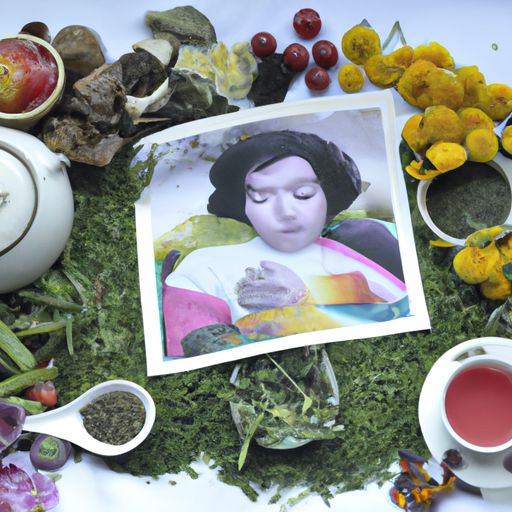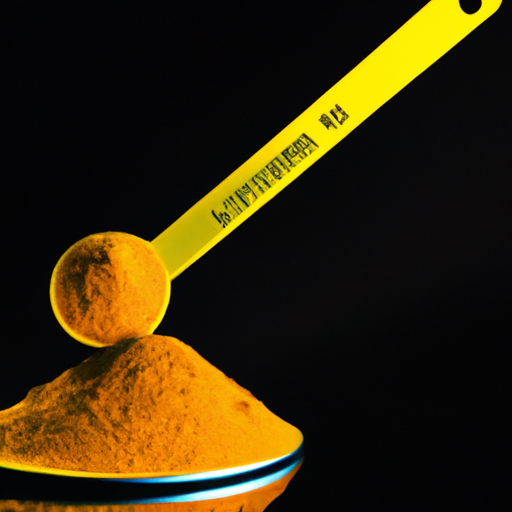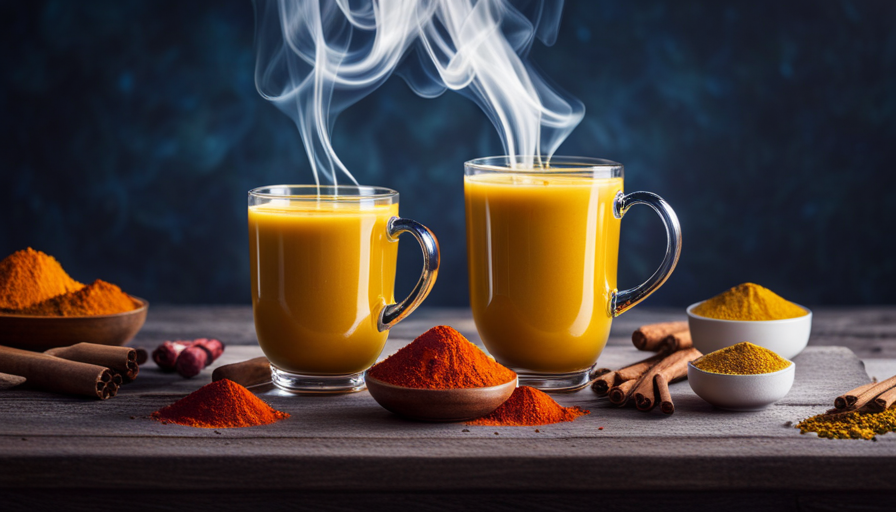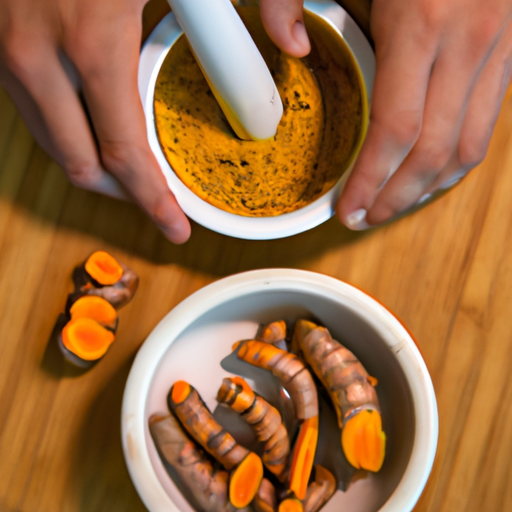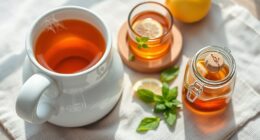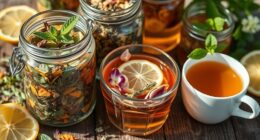As a new mom, I am always seeking ways to promote my baby’s health and wellness. A crucial element of this is ensuring that what I eat and drink is safe for breastfeeding. I enjoy having tea, but I have come across conflicting information regarding which types of tea are safe to consume while breastfeeding. Therefore, I decided to conduct some research and provide my discoveries to other breastfeeding mothers who may be facing similar uncertainties.
It’s important to be mindful of what we drink while breastfeeding because everything we consume can potentially pass through to our baby. Some substances can even decrease milk production or harm our baby’s development. However, there are many teas that are safe and may even support lactation.
In this article, I will explore which teas are safe to drink while breastfeeding, the benefits of drinking herbal tea, and how to choose the right tea for you and your baby.
Key Takeaways
- Herbal teas are generally safe to drink while breastfeeding, but certain herbs and caffeine should be avoided.
- Safe herbal teas to drink while breastfeeding include chamomile, ginger, lemon balm, fennel, and rooibos.
- Some herbal teas, such as fenugreek, fennel, milk thistle, and nettle tea, can support lactation.
- Caffeine intake should be limited to 300mg per day while breastfeeding, so choosing decaf or herbal teas is a good option.
Why It’s Important to Be Mindful of What You Drink While Breastfeeding
You need to be mindful of what you’re drinking while breastfeeding because it can affect your baby’s health and well-being.
One of the benefits of staying hydrated is that it can support milk production and ensure that your baby is getting enough milk.
However, it’s important to avoid certain drinks that can be harmful to your baby. For example, drinking alcohol while breastfeeding can negatively impact your baby’s development and sleep patterns. It’s best to avoid alcohol altogether or limit your intake to one drink per day, and wait at least 2-3 hours after consuming alcohol before breastfeeding.
In addition to alcohol, other substances to avoid while breastfeeding include caffeine, nicotine, and certain medications. It’s important to consult with your healthcare provider before taking any medication while breastfeeding to ensure it’s safe for your baby.
When it comes to caffeine, it’s best to limit your intake to 2-3 cups per day and try to avoid consuming it close to bedtime.
By being mindful of what you’re drinking, you can help ensure that your baby is healthy and thriving.
Now, let’s talk about herbal teas that are safe to drink while breastfeeding.
Herbal Teas that Are Safe to Drink While Breastfeeding
Safe herbal infusions are a great option for nursing mothers who want to enjoy a warm cup of tea without worrying about the effects it may have on their baby. Here are five flavors to try and some brewing tips to make the most of your tea-drinking experience:
- Chamomile: known for its calming properties, chamomile is a great choice for mothers who need to relax and reduce stress.
- Ginger: a popular remedy for nausea and digestive issues, ginger can also help boost your immune system and reduce inflammation.
- Lemon balm: a member of the mint family, lemon balm can help reduce anxiety and improve sleep quality.
- Fennel: this licorice-flavored herb has been traditionally used to increase milk production and improve digestion.
- Rooibos: a caffeine-free tea from South Africa, rooibos is high in antioxidants and can help reduce inflammation and improve heart health.
To make the most of your herbal tea, use fresh, filtered water and steep for at least 5-10 minutes to allow the flavors and nutrients to fully infuse. You can also try adding some honey or lemon juice for extra flavor.
While herbal teas are generally safe to drink while breastfeeding, it’s important to avoid any teas that contain caffeine or specific herbs that may have negative effects on your baby.
In the next section, we’ll explore teas specifically formulated for lactation support.
Teas Specifically Formulated for Lactation Support
I personally found that some teas specifically formulated for lactation support helped me increase my milk supply while breastfeeding. Fenugreek tea, fennel tea, milk thistle tea, and nettle tea are some examples of herbs known to support lactation.
These teas can be found at some health food stores or online, and should be consumed in moderation as directed.
Fenugreek Tea
Fenugreek tea is a popular choice for nursing mothers looking to boost their milk supply. This tea is made from the seeds of the fenugreek plant and has been used for centuries in traditional medicine for its health benefits.
To prepare fenugreek tea, simply steep 1-2 teaspoons of fenugreek seeds in hot water for 5-10 minutes.
Here are some key benefits of fenugreek tea for breastfeeding mothers:
- Increases milk production: Fenugreek contains compounds that can stimulate milk production in nursing mothers.
- Reduces inflammation: Fenugreek has anti-inflammatory properties that can help soothe sore nipples and breasts.
- Provides essential nutrients: Fenugreek is rich in vitamins and minerals like iron, magnesium, and vitamin B6 that are important for lactating mothers.
Moving on to fennel tea, this herbal tea is also believed to have lactation-boosting properties.
Fennel Tea
If you’re looking for another natural way to boost your milk supply, fennel tea might be worth a try! Fennel is a herb that has been used for centuries to increase milk production in nursing mothers. It contains phytoestrogens which mimic the hormone estrogen, helping to stimulate milk production.
Aside from its milk-boosting properties, fennel tea also has other benefits for breastfeeding mothers. It can help relieve digestive issues such as gas and bloating, which can be a common issue for both mother and baby.
To prepare fennel tea for breastfeeding, simply steep a teaspoon of fennel seeds in hot water for 5-10 minutes. You can drink up to three cups a day, but it’s recommended to start with one cup and gradually increase as needed.
Transitioning to the next subtopic, milk thistle tea is another herbal tea that has been used to support milk production.
Milk Thistle Tea
Loaded with antioxidants and anti-inflammatory properties, milk thistle tea has been known to aid in milk production for nursing mothers. This tea is made from the seeds of the milk thistle plant, which has been used for centuries to treat liver and gallbladder problems.
In addition to its milk-boosting properties, milk thistle tea also offers several health benefits for both moms and babies. It helps to detoxify the liver and support healthy liver function. It may reduce inflammation and promote healing in the body. It has been shown to have anti-cancer properties.
Dosage recommendations for milk thistle tea vary depending on the form of the supplement. As a tea, it’s generally safe to consume 1-2 cups per day. However, it’s important to note that milk thistle can interact with certain medications and may not be appropriate for everyone. Possible side effects and contraindications should be discussed with a healthcare provider before consuming milk thistle tea.
Moving on to the next topic, nettle tea is another great option for breastfeeding moms.
Nettle Tea
You may be surprised to learn that nettle tea is a natural and effective way to boost your milk supply. Nettle tea is made from the leaves of the stinging nettle plant, which is known for its medicinal properties.
This tea is rich in vitamins and minerals, such as iron, calcium, and magnesium, which are essential for maintaining a healthy milk supply. Nettle tea benefits extend beyond just milk supply. It’s also known to help reduce inflammation, boost immunity, and support overall health.
Nettle tea can be enjoyed hot or cold and can be brewed using fresh or dried nettle leaves. There are many nettle tea recipes available online, so you can easily find a recipe that suits your taste.
Drinking herbal tea while breastfeeding can provide numerous benefits for both you and your baby. It’s important to choose teas that are safe for breastfeeding and to consult with your healthcare provider before trying any new herbal remedies.
Benefits of Drinking Herbal Tea While Breastfeeding
Drinking herbal tea while breastfeeding can be a game-changer for your milk supply. The benefits of consuming herbal tea during lactation outweigh the risks, and it can be enjoyed at any time of the day.
These teas contain natural ingredients like fennel, fenugreek, and milk thistle, known to increase milk production and maintain a healthy milk flow. Besides, they provide the necessary hydration to keep you and your baby healthy, especially during hot weather or when you’re dehydrated.
However, it’s essential to choose the right tea that suits your preference and doesn’t interfere with your baby’s feeding. You can consult your healthcare professional or a lactation consultant for recommendations or research online for reviews and ingredients.
In the next section, we’ll explore how to choose the right tea that meets your needs.
How to Choose the Right Tea
Selecting the perfect herbal infusion for lactation requires careful consideration of your preferences, ingredients, and baby’s feeding patterns.
Factors to consider include the caffeine content, presence of allergens, and the taste of the tea. It’s important to avoid teas with high levels of caffeine, as it can lead to restlessness and irritability in both mother and child. Additionally, it’s recommended to avoid teas with allergens such as chamomile, which can cause allergic reactions in some individuals.
When brewing a tea, it’s important to follow the instructions carefully and use the right amount of tea leaves or tea bags. Over-brewed tea can lead to a bitter taste, while under-brewed tea may not have the desired flavor. Moreover, it’s important to ensure that the tea is hot enough to release the active compounds and beneficial properties of the herbs.
Tips for brewing include using freshly boiled water, steeping for the recommended time, and covering the tea while it steeps. With these factors in mind, you can select the perfect herbal infusion to support your lactation journey and enjoy a relaxing cup of tea.
When it comes to drinking tea while breastfeeding, there are certain precautions to take to ensure the safety of both mother and child.
Precautions to Take While Drinking Tea While Breastfeeding
Now that we know how to choose the right tea, it’s important to also consider tea safety while breastfeeding. As much as we enjoy a cup of tea, we should always keep in mind the amount of caffeine we’re consuming.
Having too much caffeine can lead to irritability, wakefulness, and even dehydration which can affect milk production. To ensure tea safety, it’s best to limit caffeine intake to 300mg per day while breastfeeding. This is roughly equivalent to 2-3 cups of tea.
It’s important to note that different teas contain varying levels of caffeine, so it’s best to check the caffeine content before consumption. Moreover, it’s important to remember that caffeine can affect babies differently, so it’s best to observe any changes in their behavior after drinking caffeinated tea.
Next, let’s delve deeper into the topic of how much tea is safe to drink while breastfeeding.
How Much Tea is Safe to Drink While Breastfeeding
You may want to monitor your tea intake to maintain milk production and avoid irritability, as excessive caffeine consumption can affect your baby’s behavior differently. While there’s no fixed limit on how much tea you can consume while breastfeeding, it’s recommended to keep it below 300mg of caffeine per day, which is roughly equivalent to 3 cups of tea.
Here are some tips to help you safely enjoy a cup of tea while breastfeeding:
-
Time your tea consumption: It’s best to drink tea soon after nursing your baby or at least an hour before the next feeding to minimize caffeine transfer to your baby through breast milk.
-
Choose decaf or herbal teas: These types of teas are naturally caffeine-free and safe for breastfeeding mothers. Chamomile, ginger, and peppermint teas are some popular options that can help soothe digestion and improve sleep.
-
Stay hydrated: Drinking plenty of water and other non-caffeinated fluids can help you maintain milk supply and prevent dehydration, which can affect milk production.
-
Observe your baby’s reaction: If you notice any signs of fussiness, restlessness, or sleeplessness in your baby after drinking tea, consider reducing your tea intake or switching to decaf or herbal teas.
Incorporating these safe tea consumption practices can help you enjoy a cup of tea while breastfeeding without compromising your baby’s health. Other ways to support lactation include proper nutrition, rest, and breastfeeding on demand.
Other Ways to Support Lactation
To promote lactation, it’s essential to maintain a healthy diet, get enough rest, and nurse your baby on demand. Breastfeeding nutrition is crucial as it affects both the quality and quantity of milk production.
It’s recommended that breastfeeding mothers consume at least 1800-2200 calories per day, with a focus on nutrient-dense foods such as fruits, vegetables, lean protein, and whole grains. Adequate hydration is also crucial, so make sure to drink plenty of water and avoid sugary drinks.
Postpartum self-care is equally important for lactation support. As a new mother, it can be challenging to find time for yourself, but it’s necessary to prioritize self-care. This can include taking short naps when your baby sleeps, going for a walk, or practicing relaxation techniques such as meditation or yoga.
Seeking support from family and friends, joining a breastfeeding support group, or talking to a lactation consultant can also be helpful. Remember, taking care of yourself isn’t selfish, it’s essential for both you and your baby’s well-being.
Frequently Asked Questions
Can drinking too much tea while breastfeeding affect my baby’s sleep patterns?
Drinking too much tea with caffeine while breastfeeding may affect your baby’s sleep patterns. However, herbal teas such as chamomile and fennel can have benefits for breastfeeding mothers without causing adverse effects on your baby.
Are there any teas that should be avoided while breastfeeding, even if they are marketed as safe for lactation support?
When it comes to teas while breastfeeding, be cautious of common herbal ingredients such as peppermint, sage, and parsley. Avoid teas marketed as lactation support containing these ingredients, as they may decrease milk supply.
How soon after drinking tea should I breastfeed my baby?
When it comes to breastfeeding and tea, timing is key. It’s best to wait at least 30 minutes after drinking tea before breastfeeding. As for tea choices, stick to caffeine-free options like chamomile, ginger, and fennel for optimal lactation support.
Can drinking tea while breastfeeding affect the taste of my breast milk?
Drinking certain teas while breastfeeding may impact the taste of breast milk. I avoid teas containing caffeine, herbs like sage and peppermint that can decrease milk supply, and those with high levels of tannins.
Are there any potential side effects of drinking herbal tea while breastfeeding?
I investigated and found that herbal teas pose potential risks while breastfeeding. Precautions include avoiding teas with caffeine, licorice root, and certain herbs. Consult with a healthcare provider before consuming herbal teas.
Conclusion
In conclusion, discovering the right teas to drink while breastfeeding can be a game-changer for both you and your baby. Not only do these teas provide a comforting and soothing experience, but they also offer a wide range of health benefits. These benefits include boosting your milk supply and enhancing your immune system.
By incorporating the right teas into your diet, you can make your breastfeeding journey easier, more enjoyable, and more successful. So why not give it a try? With so many safe and delicious options to choose from, you’re sure to find a tea that suits your needs and tastes.
Cheers to happy breastfeeding!

